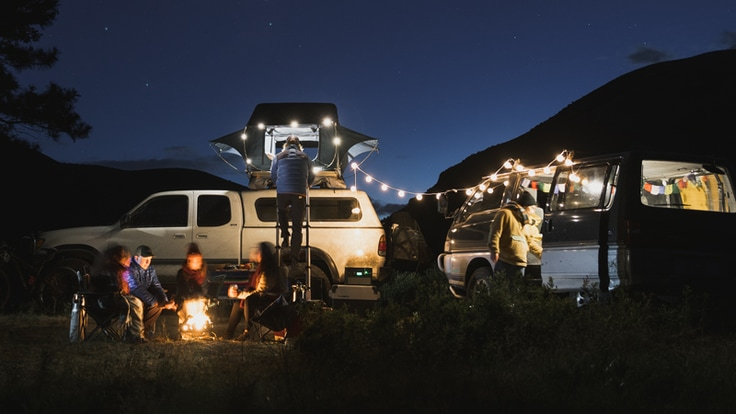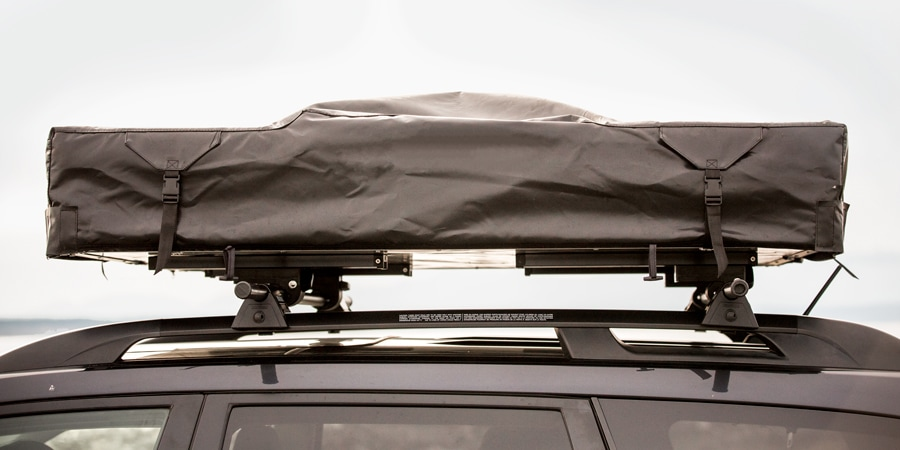How to Choose a Roof-Top Tent: A Comprehensive Guide

Roof-top tents have gained popularity among campers in recent years, providing a unique and elevated camping experience. If you're considering buying a roof-top tent, there are several key factors to consider. This guide will walk you through the pros and cons of roof-top tents, how to determine compatibility with your vehicle, the attachment process, and additional considerations before making a purchase.
The Appeal of a Roof-Top Tent
Roof-top tents have been around for decades but have recently gained significant popularity in the U.S. Many owners appreciate the high vantage point they offer, evoking a primal connection to nature. The idea of sleeping above the ground, reminiscent of tree houses or safe perches, adds to the appeal of rooftop tents.
Pros of a Roof-Top Tent
- Quick setup: Roof-top tents are designed for easy and fast setup. Once you reach your camping spot, you can effortlessly undo a few straps, pop it open, and deploy the poles and ladder.
- Sturdy construction: These tents are built to withstand various weather conditions, with robust flooring, tent fabric, and pole materials.
- Comfort: Most roof-top tents come with a plush foam mattress, ensuring a comfortable sleeping experience.
- Versatility: Roof-top tents can be set up in various locations, including campgrounds, parking lots, or remote dirt tracks.
- Elevated camping: By keeping your tent above the ground, you avoid rainwater runoff, crawling creatures, rocks, and sticks.
- Level sleeping surface: Using blocks or rocks strategically placed under your vehicle's tires helps you achieve a flat and stable sleeping platform.
Cons of a Roof-Top Tent
- Cost: Roof-top tents are generally more expensive than traditional camping tents, although they are more affordable than RVs.
- Aerodynamic drag: When driving at high speeds, roof-top tents can increase aerodynamic drag, which may impact your gas mileage or battery usage.
- Initial rooftop attachment: Attaching the tent to your roof rack for the first time requires effort and time. Additionally, you need to decide whether to remove it between camping trips.
- Day trip limitations: Unlike other tents, you cannot leave a rooftop tent set up while driving away from your campsite for day trips.
Fitting a Roof-Top Tent to Your Vehicle

Before purchasing a roof-top tent, it's crucial to ensure compatibility with your vehicle. Consider the following factors:
- Total tent weight: Check the tent's product specifications for its weight.
- Car and rack dynamic weight capacity: Verify the ability of both your vehicle and roof rack to support the weight of the tent while driving. Consult your vehicle owner's manual for the roof's dynamic weight capacity and your rack owner's manual for the same information.
- Rack compatibility: Confirm that your rack is compatible with a roof-top tent by referring to the owner's manual. Some racks or components may be listed as "not compatible."
- Static weight capacity: Although most car roofs can withstand the weight of a roof-top tent, ensure that the static weight capacity of your vehicle and rack can support the tent, occupants, and their gear.
Attaching the Tent to Your Roof Rack

The initial process of attaching the roof-top tent to your roof rack may be time-consuming. Follow the provided installation instructions carefully and have at least one strong partner nearby to assist in lifting the tent onto the rack.
Additional Shopping Considerations
Apart from compatibility and attachment, consider the following factors when choosing a roof-top tent:
- Annexes and awnings: Some tent models include extended living spaces or covered areas, while others allow you to add these features later.
- Durability levels: Different brands offer various levels of durability, with some models designed for extended trips in extreme climates. All-mesh canopies are also available as an option.
- Hardtops vs. fabric models: Fabric tents are more affordable, while hardtops provide enhanced protection during travel.
- Shipping costs: Depending on the model, shipping a roof-top tent to your home can be expensive due to its weight. Look for options like free in-store shipping or explore local retailers.
- Try before you buy: Research rental options for rooftop tents to experience the elevated camping lifestyle before making a purchase.
Other Tents That Attach to Your Vehicle
In addition to roof-top tents, alternative options exist that attach to other parts of your vehicle. Some brands offer tents that attach to the tailgate of an SUV or the bed of a pickup truck. These setups provide the advantage of allowing you to set up the tent and then use the vehicle for day trips.
By considering all these factors and understanding the pros and cons, compatibility, attachment process, and additional considerations, you can make an informed decision when choosing a roof-top tent that suits your camping needs and preferences.

KASSICO, a leading sheet metal fabrication factory with plant area of 15,000 square meters in Ningbo, China since 2001, specializing in metal camping products with complete production in mold design, laser cutting, stamping, bending, powder coating and assembly. We provide a wide range of
aluminum boxes, aluminum tables & chairs, and other metal camping products for customers all over the world. Since 2015, we expanded our capabilities by adding a sewing factory for
outdoor tent, also, we expanded trade business to other camping gear and outdoor equipment. KASSICO is committed to providing one-stop OEM & ODM services. With multiple sets of outdoor product solutions, we provide customers with hundreds of innovative and affordable outdoor products.
More Details: https://www.kassico-outdoor.com/



